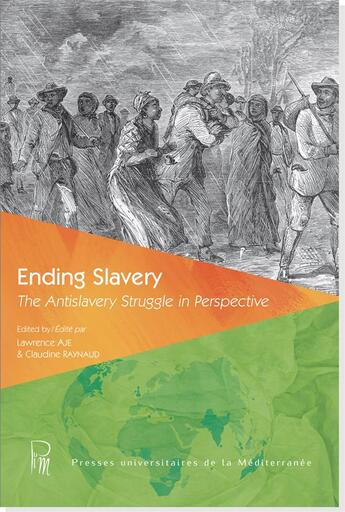-
Nombre de pages : 302
-
Collection :
(-)
-
Genre :
(-)
-
Thème :
Langues étrangères
-
Prix littéraire(s) :
(-)
Résumé:
Ending Slavery broadens the scope of the antislavery struggle beyond the national narrative to draw a map of a new transnational and differentiated geography of abolitionism. It aims at complicating our understanding of the antislavery struggle by offering an opportunity to rethink the... Voir plus
Ending Slavery broadens the scope of the antislavery struggle beyond the national narrative to draw a map of a new transnational and differentiated geography of abolitionism. It aims at complicating our understanding of the antislavery struggle by offering an opportunity to rethink the relationship between the personal and the political in the antebellum period. Focusing on the post-1830 period, Ending Slavery also presents a new and ambitious periodization by extending its historical breadth through Reconstruction, well into the present, to examine contemporary representations and interpretations of the history of abolitionism. The book puts forward a reflection on the historiographical and memorial legacies of antislavery activity in the United States and interrogates how this activism partook and still partakes in the long Civil Rights Movement for full social and political equality for African Americans. Ending Slavery ambitions to expand discussions and open new perspectives on the history of abolitionism, slavery and Atlantic studies.Ending Slavery élargit le champ de la lutte anti-esclavagiste au-delà du récit national étasunien pour dessiner la carte d'une nouvelle géographie transnationale et différenciée de l'abolitionnisme. Il complexifie notre compréhension de la lutte anti-esclavagiste en proposant de repenser la relation entre le personnel et le politique avant la guerre de Sécession. En se concentrant sur la période postérieure à 1830, Ending Slavery offre une périodisation nouvelle t ambitieuse qui recouvre la période de la Reconstruction et s'ouvre sur le présent par un examen des représentations et les interprétations contemporaines de l'histoire de l'abolitionnisme. L'ouvrage met en avant une réflexion sur l'héritage historiographique et mémoriel de l'activité anti-esclavagiste aux États-Unis et interroge la façon dont cet activisme a été partie prenante et continue d'être au coeur du mouvement des droits civiques pour l'égalité sociale et politique des Africains Américains. Son ambition est de contribuer à enrichir les discussions et ouvrir de nouvelles perspectives sur l'histoire de l'abolitionnisme, de l'esclavage et des études atlantiques.
Donner votre avis















